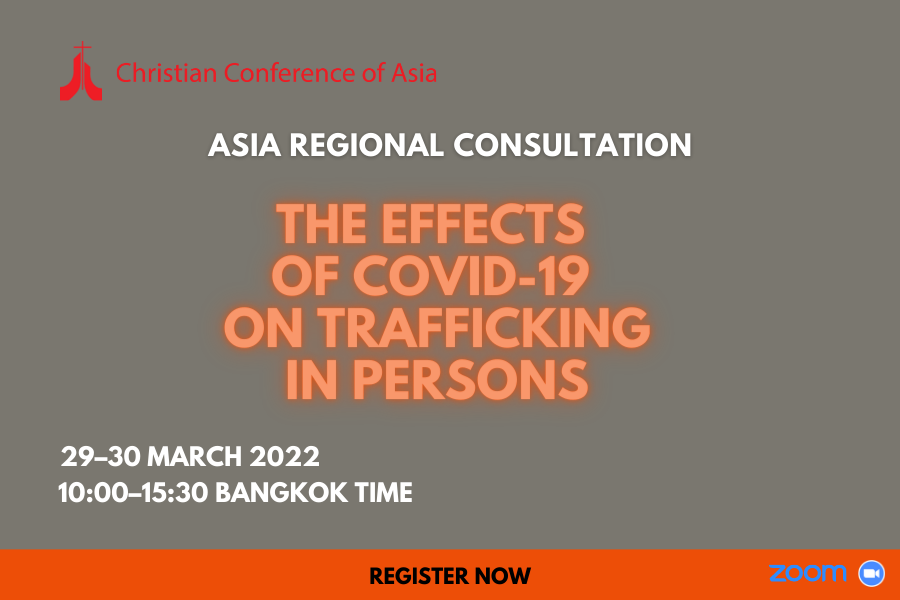‘The Effects of COVID-19 on Trafficking in Persons’ will be focus of upcoming CCA Consultation

The Christian Conference of Asia (CCA) will organise an Asia Regional Consultation on ‘The Effects of COVID-19 on Trafficking in Persons’ on 29 and 30 March 2022.
The two-day Consultation, which will be held online, will focus on the emergence of new risks and challenges to victims and survivors of human trafficking in the context of the COVID-19 pandemic.
Given the multiple effects of the pandemic on people’s lives and the spike in economic need, debt bondage, and forced labour, many people across the world and specifically in Asia are at risk of becoming victims of human trafficking. Labour trafficking, both within countries and beyond borders, has increased; due to school closures and loss of parents’ jobs, a great many children are being forced to work and are being trafficked. Women and girls constituted the most detected victims of human trafficking before the outbreak, and now, in the midst of the pandemic, they are being specifically targeted by traffickers.
Representatives from the CCA’s member churches and councils as well as interested individuals who attend this Consultation will learn from the resource persons, receive up-to-date information, and engage in timely situational analyses about the nature, contexts, current situations, human rights violations, emerging trends and patterns of trafficking in persons. They will also become acquainted with relevant policy developments in the context of the COVID-19 pandemic, and with the way these policies relate to their countries.
Registrations for the two-day Consultation will close on 20 March 2022.
The Consultation on 29–30 March 2022 will begin at 10:00 and end at 15:30 Bangkok (Thailand) time on both days.
The online registration link and the Background Information note can be found below:










